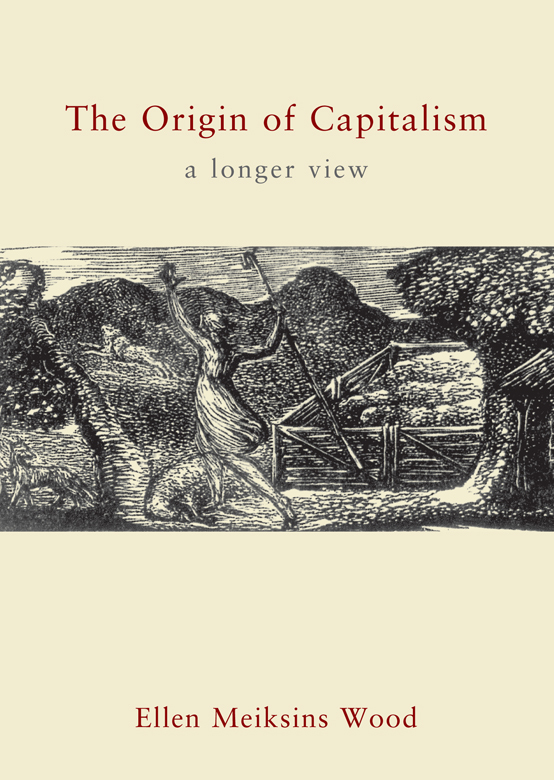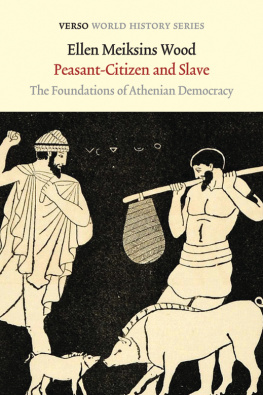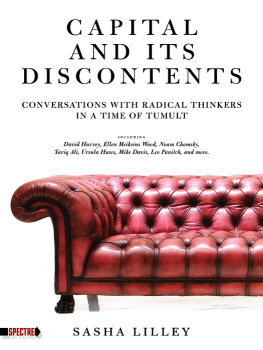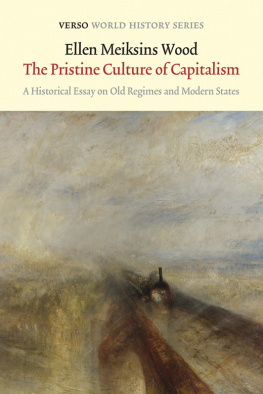Ellen Meiksins Wood - The Origin of Capitalism: A Longer View
Here you can read online Ellen Meiksins Wood - The Origin of Capitalism: A Longer View full text of the book (entire story) in english for free. Download pdf and epub, get meaning, cover and reviews about this ebook. year: 2002, publisher: Verso, genre: Politics. Description of the work, (preface) as well as reviews are available. Best literature library LitArk.com created for fans of good reading and offers a wide selection of genres:
Romance novel
Science fiction
Adventure
Detective
Science
History
Home and family
Prose
Art
Politics
Computer
Non-fiction
Religion
Business
Children
Humor
Choose a favorite category and find really read worthwhile books. Enjoy immersion in the world of imagination, feel the emotions of the characters or learn something new for yourself, make an fascinating discovery.

- Book:The Origin of Capitalism: A Longer View
- Author:
- Publisher:Verso
- Genre:
- Year:2002
- Rating:5 / 5
- Favourites:Add to favourites
- Your mark:
- 100
- 1
- 2
- 3
- 4
- 5
The Origin of Capitalism: A Longer View: summary, description and annotation
We offer to read an annotation, description, summary or preface (depends on what the author of the book "The Origin of Capitalism: A Longer View" wrote himself). If you haven't found the necessary information about the book — write in the comments, we will try to find it.
The Origin of Capitalism: A Longer View — read online for free the complete book (whole text) full work
Below is the text of the book, divided by pages. System saving the place of the last page read, allows you to conveniently read the book "The Origin of Capitalism: A Longer View" online for free, without having to search again every time where you left off. Put a bookmark, and you can go to the page where you finished reading at any time.
Font size:
Interval:
Bookmark:


OF CAPITALISM

ELLEN MEIKSINS WOOD

This edition first published by Verso 2002
Ellen Meiksins Wood 2002
First published as The Origin of Capitalism
Monthly Review Press, 1999
All rights reserved
The moral rights of the author have been asserted
5 7 9 10 8 6 4
Verso
UK: 6 Meard Street, London W1F 0EG
USA: 20 Jay Street, Suite 1010, Brooklyn, NY 11201
www.versobooks.com
Verso is the imprint of New Left Books
ISBN-13: 978-1-85984-392-5 (PB)
ISBN-13: 978-1-78478-778-3 (US EBK)
ISBN-13: 978-1-78478-779-0 (UK EBK)
British Library Cataloguing in Publication Data
A catalogue record for this book is available from the British Library
Library of Congress Cataloging-in-Publication Data
A catalog record for this book is available from the Library of Congress
In the first edition, I thanked Neal Wood for his comments and encouragement, and Chris Phelps, who, when he was Editorial Director of Monthly Review Press, talked me into producing the book and also gave me some extremely useful and insightful criticisms and suggestions, not just editorial but substantive. In this substantially revised and expanded edition, I want to add thanks to George Comninel and Robert Brenner for their safety checks (though any remaining mistakes are, of course, my own), and their helpful suggestions, not to mention years of discussion on the relevant issues. My thanks also to Martin Paddio at MRP for his cooperation, against the odds; and to Sebastian Budgen at Verso for his constructive criticisms (as well as his role together with other editors of Historical Materialism in giving me an opportunity to rehearse in its pages some of the ideas on which this book is based). Im also grateful to Justin Dyer for his careful and intelligent copy-editing, and to Tim Clark for his efficient guidance of the book through production.
The collapse of Communism in the late 1980s and 1990s seemed to confirm what many people have long believed: that capitalism is the natural condition of humanity, that it conforms to the laws of nature and basic human inclinations, and that any deviation from those natural laws and inclinations can only come to grief.
There are, of course, many reasons today for questioning the capitalist triumphalism that followed in the wake of the collapse. While I was writing the introduction to the first edition of this book, the world was still reeling from the Asian crisis. Today, the financial pages of the daily press are nervously watching the signs of recession in the US and rediscovering the old capitalist cycles that they had been assuring us were a thing of the past. The period between these two episodes has been punctuated in various parts of the world by a series of dramatic demonstrations that proudly describe themselves as anti-capitalist; and, while many participants seem inclined to dissociate the evils of globalization or neoliberalism from the essential and irreducible nature of capitalism itself, they are very clear about the conflict between the needs of people and the requirements of profit, as manifested in everything from the growing gap between rich and poor to increasing ecological destruction.
In the past, capitalism has always pulled out of its recurrent crises, but never without laying a foundation for new and even worse ones. Whatever means have been found to limit or correct the damage, as many millions of people have often suffered from the cure as from the disease.
The increasingly transparent weaknesses and contradictions in the capitalist system may eventually convince even some of its more uncritical supporters that an alternative needs to be found. But the conviction that there is and can be no alternative is very deeply rooted, especially in Western culture. That conviction is supported not only by the more blatant expressions of capitalist ideology but also by some of our most cherished and unquestioned beliefs about history not just the history of capitalism but history in general. It is as if capitalism has always been the destination of historical movement and, more than that, the movement of history itself has from the beginning been driven by capitalist laws of motion.
B EGGING THE Q UESTION
Capitalism is a system in which goods and services, down to the most basic necessities of life, are produced for profitable exchange, where even human labour-power is a commodity for sale in the market, and where all economic actors are dependent on the market. This is true not only of workers, who must sell their labour-power for a wage, but also of capitalists, who depend on the market to buy their inputs, including labour-power, and to sell their output for profit. Capitalism differs from other social forms because producers depend on the market for access to the means of production (unlike, for instance, peasants, who remain in direct, non-market possession of land); while appropriators cannot rely on extra-economic powers of appropriation by means of direct coercion such as the military, political, and judicial powers that enable feudal lords to extract surplus labour from peasants but must depend on the purely economic mechanisms of the market. This distinct system of market dependence means that the requirements of competition and profit-maximization are the fundamental rules of life. Because of those rules, capitalism is a system uniquely driven to improve the productivity of labour by technical means. Above all, it is a system in which the bulk of societys work is done by propertyless labourers who are obliged to sell their labour-power in exchange for a wage in order to gain access to the means of life and of labour itself. In the process of supplying the needs and wants of society, workers are at the same time and inseparably creating profits for those who buy their labour-power. In fact, the production of goods and services is subordinate to the production of capital and capitalist profit. The basic objective of the capitalist system, in other words, is the production and self-expansion of capital.
This distinctive way of supplying the material needs of human beings, so very different from all preceding ways of organizing material life and social reproduction, has existed for a very short time, barely a fraction of humanitys existence on earth. Even those who most emphatically insist on the systems roots in human nature and its natural continuity with age-old human practices would not claim that it really existed before the early modern period, and then only in Western Europe. They may see bits of it in earlier periods, or detect its beginnings in the Middle Ages as a looming threat to a declining feudalism but still constrained by feudal restrictions, or they may say that it began with the expansion of trade or with voyages of discovery with, say, Columbuss explorations at the end of the fifteenth century. Some might call these early forms proto-capitalism, but few would say that the capitalist system existed in earnest before the sixteenth or seventeenth century, and some would place it as late as the eighteenth, or perhaps even the nineteenth, when it matured into its industrial form.
Font size:
Interval:
Bookmark:
Similar books «The Origin of Capitalism: A Longer View»
Look at similar books to The Origin of Capitalism: A Longer View. We have selected literature similar in name and meaning in the hope of providing readers with more options to find new, interesting, not yet read works.
Discussion, reviews of the book The Origin of Capitalism: A Longer View and just readers' own opinions. Leave your comments, write what you think about the work, its meaning or the main characters. Specify what exactly you liked and what you didn't like, and why you think so.









